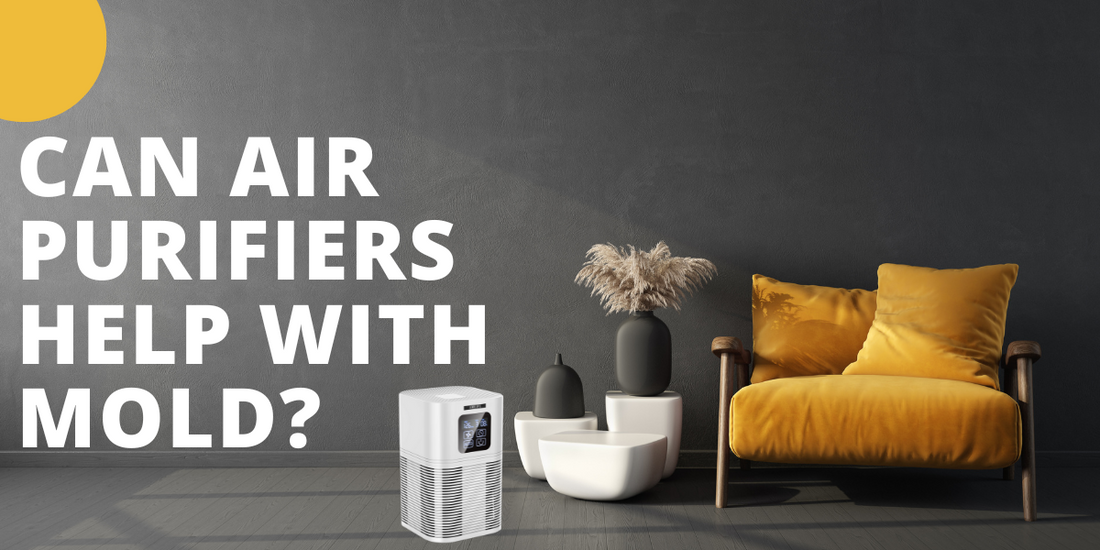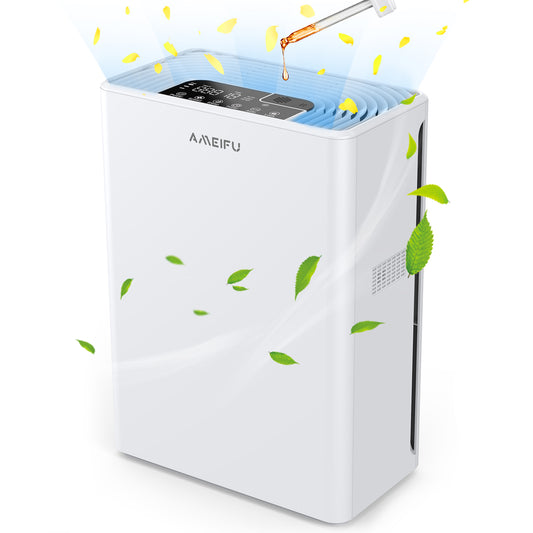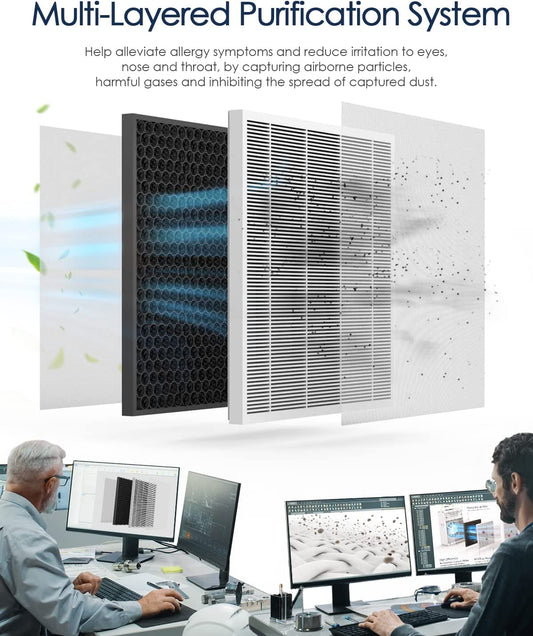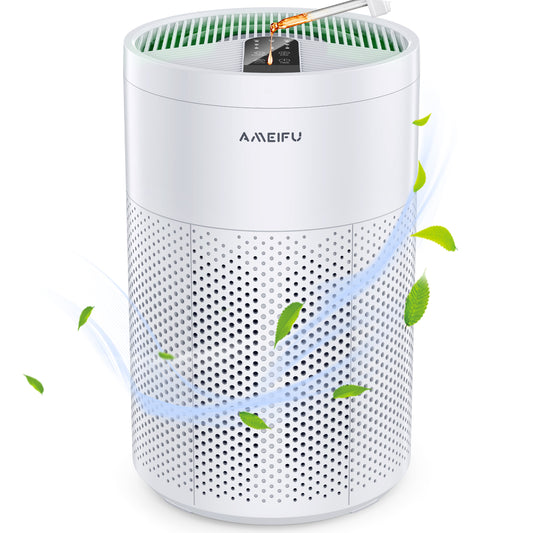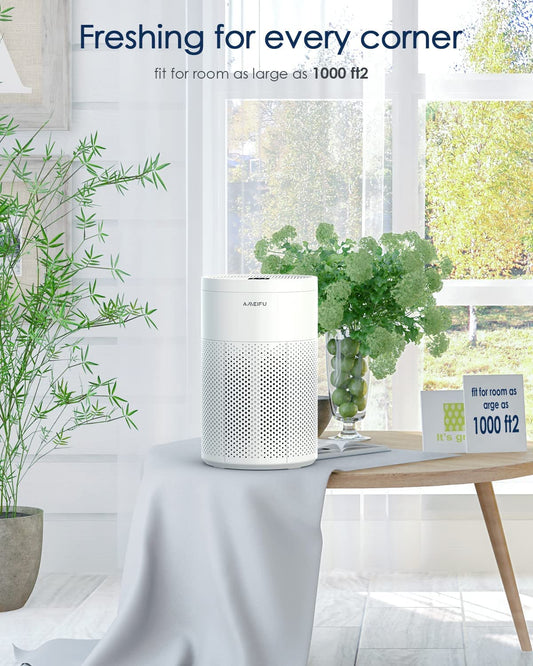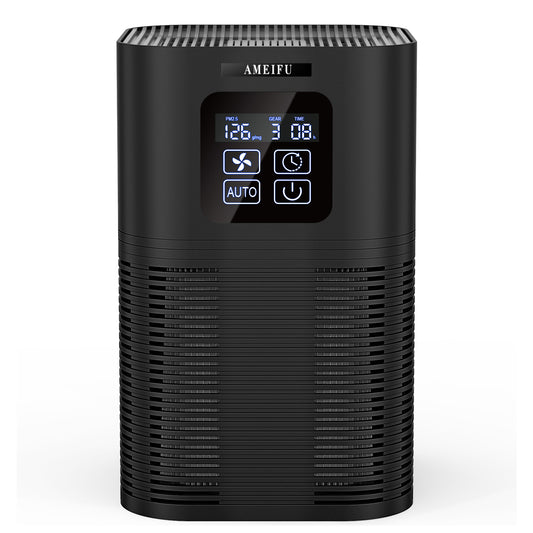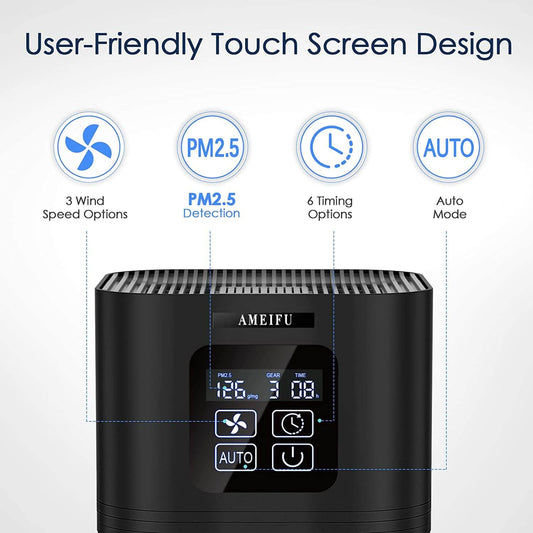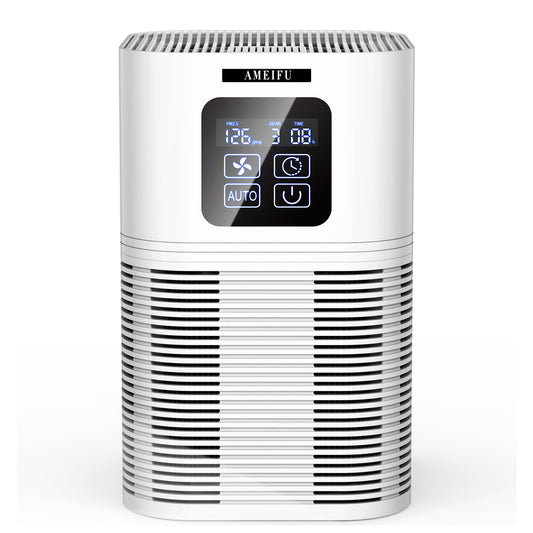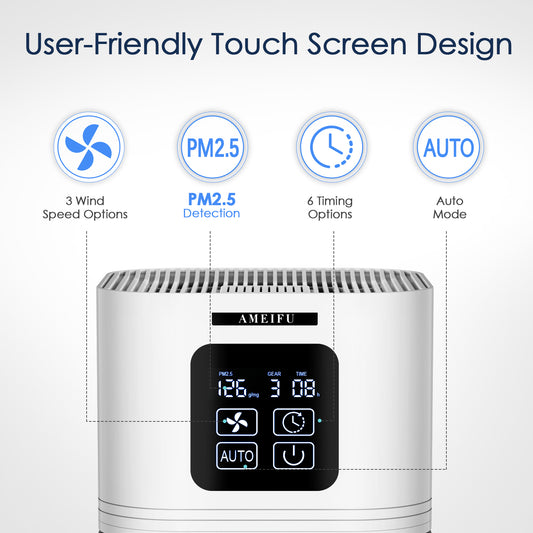Have you ever noticed a musty smell in your home or workplace? Not only can mold be unsightly and unpleasant, but it can also pose serious health risks to those who are exposed to it. In this post, we'll explore the question: Can air purifiers help with mold? Whether you're dealing with a current mold problem or looking to prevent future growth, read on to learn more about the role of air purifiers in creating a clean, healthy indoor environment.
How air purifiers work to remove mold spores from the air?
Air purifiers use a variety of mechanisms to remove contaminants from the air, including mold spores. Some common methods include HEPA filters, activated carbon filters, and UV-C light. HEPA filters work by trapping particles in a fine mesh, while activated carbon filters use a process called adsorption to remove gases and odors. UV-C light kills bacteria, viruses, and mold spores by damaging their DNA. By using one or more of these methods, air purifiers can effectively remove mold spores from the air.
Benefits of using an air purifier for mold prevention
Using an air purifier for mold prevention can provide several benefits beyond just removing mold spores from the air. By purifying the air, air purifiers can also help reduce other airborne allergens like pollen, dust, and pet dander, which can trigger allergies or asthma symptoms in some individuals. Additionally, air purifiers can help eliminate odors, which can be especially helpful in damp areas where mold tends to grow. By keeping the air clean and fresh, air purifiers can help create a more pleasant living environment and promote better overall health.

Types of air purifiers that are best for dealing with mold
There are several types of air purifiers on the market, but not all are created equal when it comes to removing mold from the air. HEPA (High-Efficiency Particulate Air) air purifiers are considered the most effective at capturing and removing mold spores from the air. These purifiers use a dense filter that can trap particles as small as 0.3 microns, which includes most mold spores. However, it's important to note that not all HEPA filters are the same, and some may not be capable of removing all types of mold spores. For the best results, look for an air purifier with a True HEPA filter, which has been tested and certified to remove at least 99.97% of airborne particles as small as 0.3 microns.
Another type of air purifier that can be effective against mold is an activated carbon filter. These filters work by adsorbing (not absorbing) gaseous pollutants, including volatile organic compounds (VOCs) and odors. While they may not be as effective at removing mold spores as HEPA filters, they can help eliminate the musty odors often associated with mold growth.
UV-C air purifiers use ultraviolet light to kill mold and other microorganisms in the air. While these purifiers can be effective against mold, they work best when combined with HEPA filters. UV-C air purifiers alone may not be as effective at removing all types of mold spores from the air.

Practical tips for choosing and maintaining an air purifier for optimal mold reduction
When choosing an air purifier for mold reduction, it's important to look for a model that features a HEPA filter or another effective type of filter for capturing mold spores. It's also important to consider the size of the room where the air purifier will be used, as well as the air exchange rate, which is the number of times per hour that the air in the room is filtered.
Maintaining an air purifier for optimal mold reduction involves regularly replacing the filter, cleaning the unit, and monitoring humidity levels in the room. It's also important to follow manufacturer instructions and use the air purifier according to its intended purpose.
Conclusion
Air purifiers can be an effective tool in preventing and reducing mold growth in your home or workplace. By filtering out mold spores from the air, air purifiers can improve the overall air quality and create a healthier indoor environment. However, it's important to choose the right type of air purifier and maintain it properly to ensure optimal mold reduction. Additionally, it's crucial to address any underlying moisture issues that may be contributing to mold growth. By combining air purifiers with other preventative measures, such as controlling humidity levels and practicing good ventilation, you can create a mold-resistant space that promotes good health and well-being. So don't let mold take over your living spaces - invest in an air purifier today and breathe easy knowing you're taking steps towards a healthier home.

